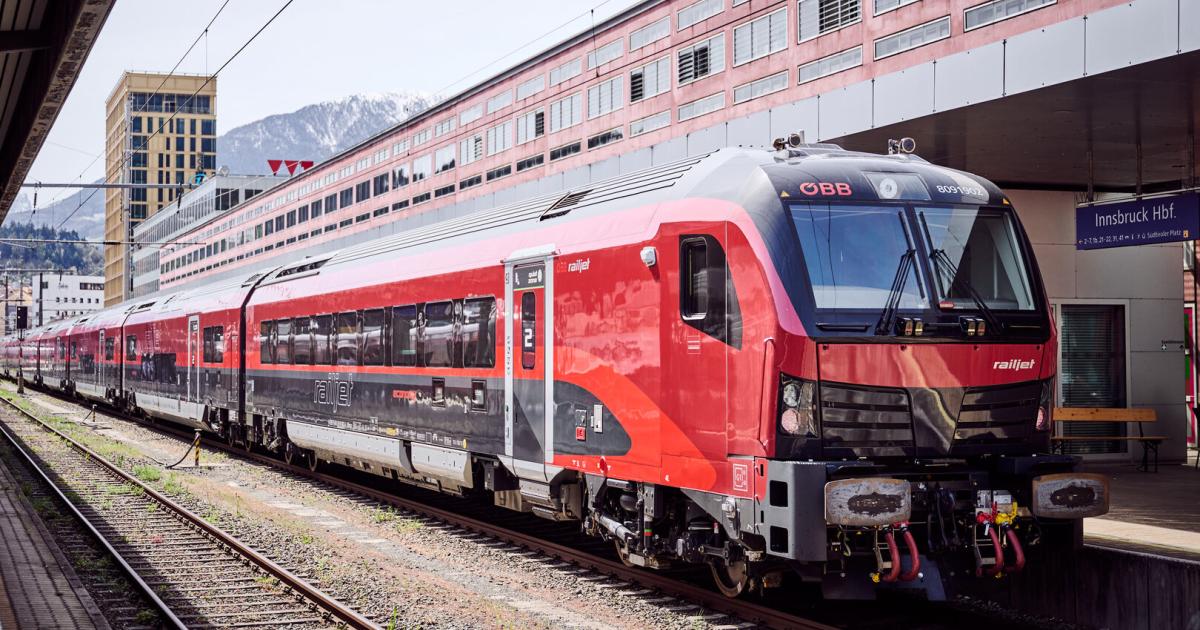Despite high energy prices, significant inflation and an economic downturn, ÖBB was unable to complain about its business last year. 494 million passengers were transported by rail and buses. That’s an increase of more than ten percent. Long-distance rail transport has risen massively from 38 million to 47 million passengers.
“In our long-term goals, we were aiming for the 500 million passenger mark for 2030 and we will exceed this in just one or two years,” says ÖBB boss Andreas Matthä. “The basis for every good railway system in a state is a good rail infrastructure.” In addition, tourists from abroad have increased their desire to travel again and ever-increasing climate awareness has also led to the growth. And in the eastern region, the comprehensive parking permit in Vienna has brought about further growth.
High electricity expenses
Total revenue increased by 5.5 percent to 7.8 billion euros. The bottom line is that a pre-tax result of 111.6 million euros was achieved, but that is almost 82 million euros less than in 2022. That is quickly explained. In addition to one-off effects (reversal of a provision), there was also a significant increase in costs due to inflation in 2022. The price of electricity rose in 2022. This was secured with financial instruments.
But when the price of electricity fell last year, ÖBB had to pay more than the market price due to the hedging for the electricity. “We had 55 million euros more electricity expenditure in 2023,” says CFO Manuela Waldner. In addition, the railway compensated its employees for the high inflation, which increased personnel costs by 270 million euros. In addition, ÖBB has to pay higher fixed interest rates for new financing.
4.5 billion euros
In the previous year, ÖBB invested a total of 4.5 billion euros, of which three billion euros were in the framework plan. The largest projects are the Koralm Tunnel, the Semmering Base Tunnel and the Brenner Base Tunnel. Investments are also being made in vehicles for passenger and freight transport. “We have ordered a total of 330 trains for six billion euros,” says Matthä. The new trains have recently been on the way. “The first Railjets have finally been delivered,” says the railway boss. The ÖBB will also receive 147 city jets by 2030, 30 of which will be delivered this year.
Punctuality in long-distance transport 80.3 percent
One of the most difficult tasks is punctuality. “We have set ourselves a target of 86 percent punctuality for long-distance transport in Austria,” says Matthä. But due to the poor situation in the German rail network, people would be happy if they achieved 82 to 83 percent. Punctuality is currently 80.3 percent in long-distance transport and 95.7 percent in local transport. “We want to fight back in freight transport,” says Matthä. “In 2023, high energy costs and falling industrial production led to transport volumes falling by eight percent to 26.1 billion net ton kilometers.” However, sales only fell by just under two percent.
The employees
ÖBB increased the number of employees from 44,369 to 45,041 people in 2023. There are also 1,000 employees from the German local transport provider Go-Ahead, which ÖBB bought. According to railway boss Andreas Matthä, up to 4,500 employees are currently being sought to compensate for retirements.
The debts
ÖBB’s tangible assets amount to 36.4 billion euros and its net debt amounts to 32.6 billion euros.
Interest expenses amounted to around 528 million euros in 2023.
The returns
The total income of ÖBB Passenger Transport was 3.25 billion euros, ÖBB Infrastructure 3.79 billion euros and the freight transport division Rail Cargo Group 1.96 billion euros.
Brauunion and Spar
Because the railway has acquired new customers. The Schwechat Brauunion has beer transported to the west of Austria and the Spar retail chain is also increasingly relying on rail transport. But rail freight transport is only economically viable if it is operated internationally. ÖBB has opened a branch in Shanghai and founded a company in Serbia. “It is important to ensure a transport chain that is as complete as possible,” says the railway boss. Traffic between Asia and Europe is managed in such a way that Russian territory is not entered. From the Turkish border, Rail Cargo is the market leader for freight transport to the Central European area.
